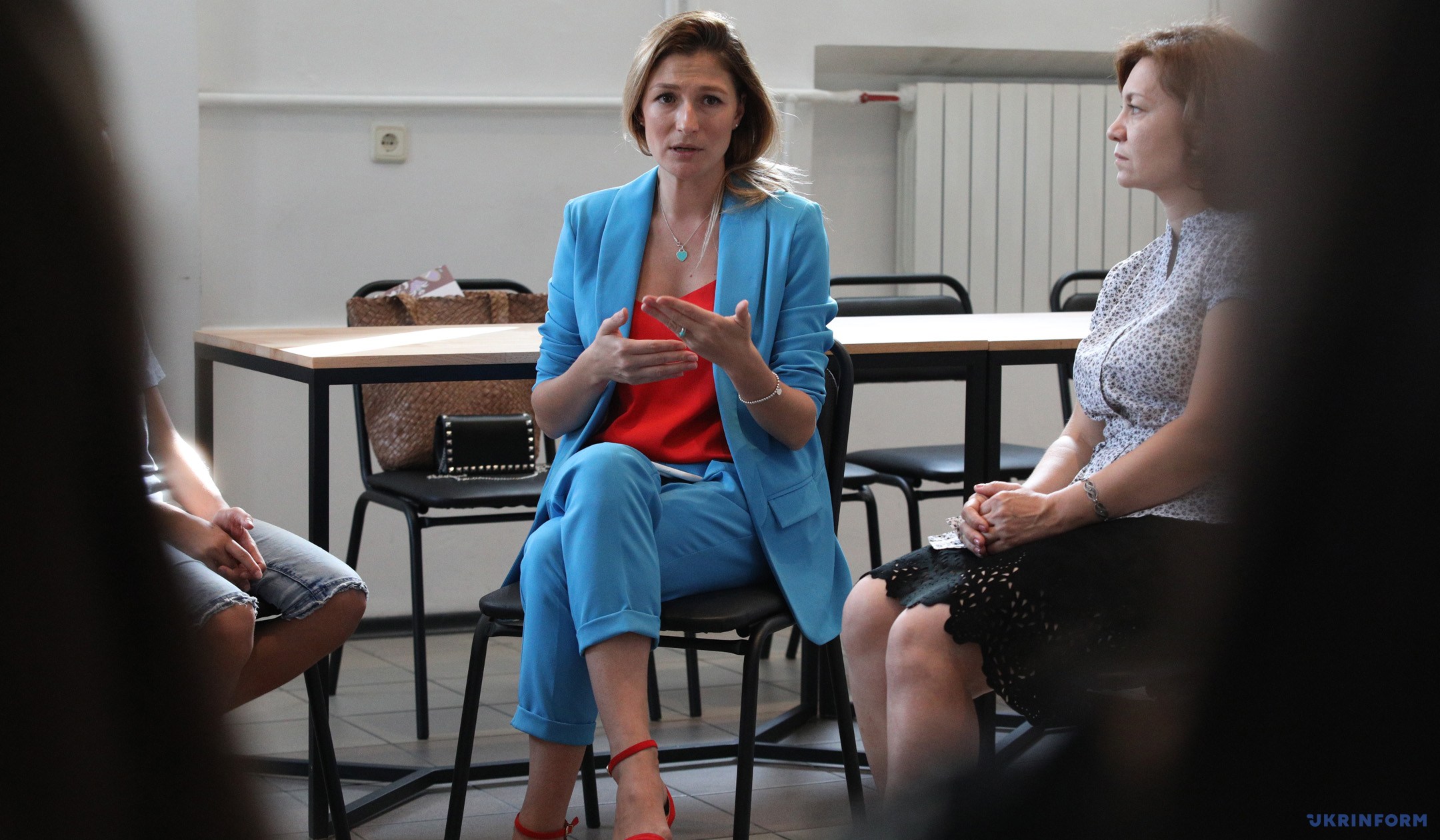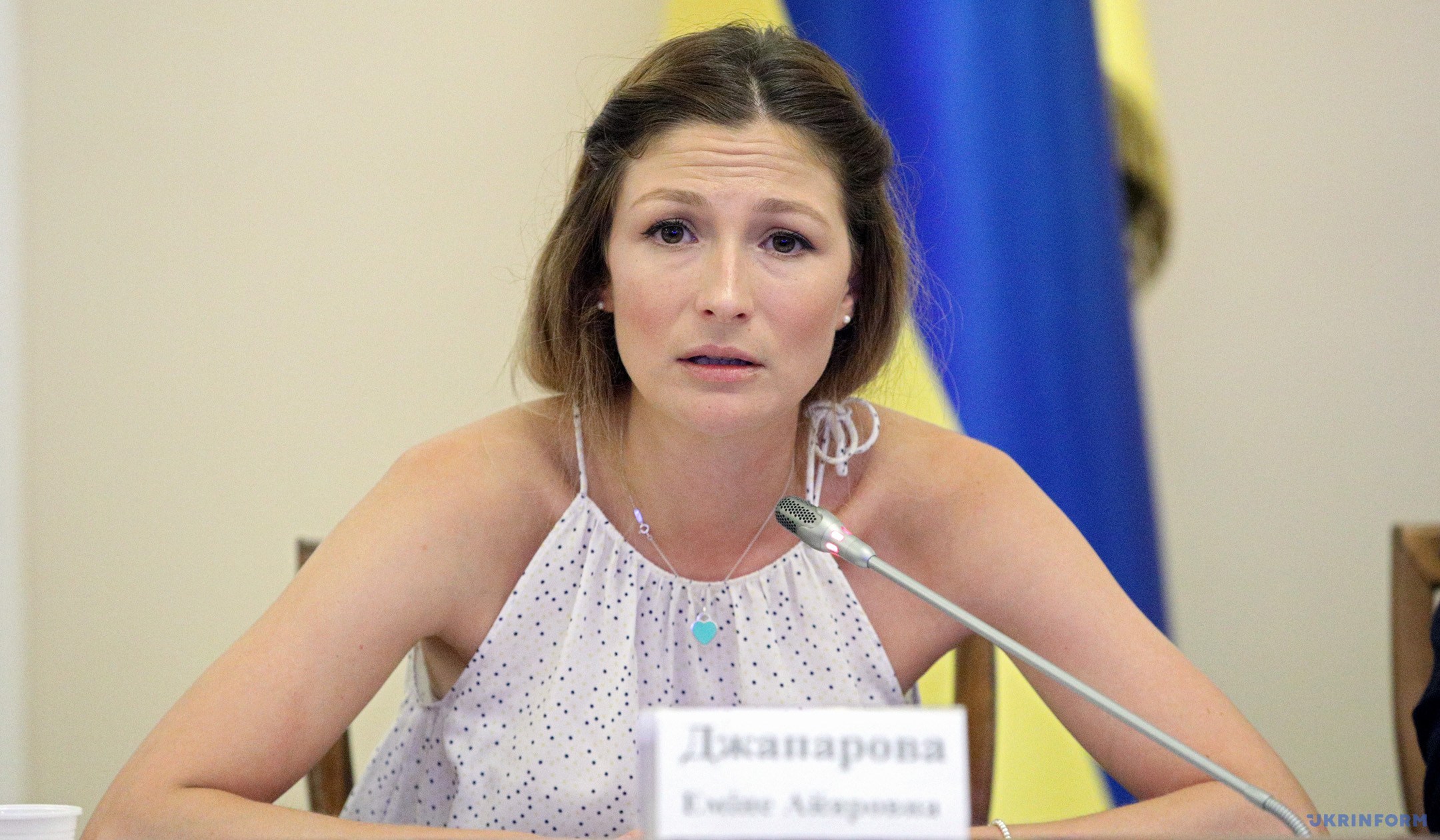The discussion on media freedom at the recent Human Dimension Implementation Meeting (HDIM) of OSCE participating States in Warsaw was quite heated. Russia used all of its open and hidden levers to demonstrate at this international platform that the rights of the media in Ukraine are violated and to say that journalism and free speech in Russian-occupied Crimea are blooming.
First Deputy Minister of Information Policy of Ukraine Emine Dzhaparova, who delivered a speech at the OSCE HDIM on September 11, spoke in an interview with Ukrinform about how Russia promotes its interests within the OSCE, and how Ukraine tries to counteract this, as well as about the situation surrounding the release of Roman Sushchenko.
Q: How do you assess this year's OSCE meeting and the working session on media freedom that took place on Tuesday? What has changed at this international platform compared to previous years?
A: I took part in the annual OSCE Human Dimension Implementation Meeting for the third time, and I must point out that this year can be defined as the most active one in terms of Russia's hybrid actions.
First and foremost, hybrid actions imply the use of existing democratic instruments against democratic systems. For example, these are speeches at a meeting of representatives from more than ten Russian NGOs under different names, for example, the Institute of Historical Memory, the Institute for Freedom of Speech or some media outlet. In fact, with the hands of journalists and public figures, the Russian Federation introduces its narratives in the OSCE, which are absolutely clear to me.
First of all, they discredit and accuse Ukraine that we are not a free country. The main manipulation is that Russia first occupies Crimea, unleashes the war in the Donbas and then continues to attack Ukraine, accusing us of violating human rights and of having no freedom of speech. This is an extraordinary level of manipulation and cynicism. The point is that Russia in no way wants to assume responsibility or recognize its crimes. This is a classic tactic: when it's bad inside the country, you need to look for an external enemy. Russian propaganda is constantly using this technology. In fact, a third of news stories in the Russian media space and even more so in the occupied territories are dedicated to Ukraine. They are mostly about the negative image of Ukraine, society, and reforms. In general, any news about Ukraine is used in Russia as a large-scale anti-Ukrainian disinformation campaign. Nowadays ordinary Russians probably know much more about Ukraine than Ukrainians themselves do, because they live with daily information that the situation in Ukraine is even worse. This is done so that the Russians do not feel how bad the situation in their country is.

Q: In fact, all representatives from Russia in their speeches made no mention of freedom of speech in Russia itself and how it is violated there. All the speeches concerned only Ukraine...
A: Yes. Public organizations that allegedly have to protect freedom of speech in their country could probably talk about Politkovskaya, dozens of "cases" concerning the killing and persecution of journalists and the lack of freedom of speech in the Russian Federation in principle. However, no organization, no representative from Russia mentioned the state of freedom of speech in Russia. That is, their entire attention, all their rhetoric, all speeches were directed against Ukraine. Therefore, we say that it is a purposeful and artificial campaign, which is guided by the Kremlin and its law enforcement structures.
As an official, I say that we are not against Russia or Russians. However, we are against the regime, and the crime of the regime against Russians lies in the fact that a system has been built there that, starting from the security forces and ending with the media, they fulfill the Kremlin's demands. It is necessary to show the Kremlin that there are saboteurs - then Steshenko is detained on the so-called border with Crimea and Sushchenko in Moscow. There is a request for the formation of a narrative in Russia that there are Ukrainian spies, that there are extremists and terrorists. They will find them among ordinary people, among journalists, among activists, among people who do nothing at all. All this done to show that they are fighting saboteurs and extremists.
This year, their maximum activity is being recorded at the OSCE meeting
Q: How is it reflected?
A: For example, for one of the events at the meeting organized by the Permanent Mission of the Russian Federation to the OSCE in Vienna, which concerned freedom of speech in Crimea, they brought several representatives of the Russian-financed Millet television channel, which was created just after the ATR channel and about ten more independent media outlets were squeezed out of Crimea. Among them are Radio MeydanFM, Chornomorka TV Channel, etc. They were not able to work there, because the system does not presuppose the existence of independent media. And now they created Millet and use it as a kind of "circus," staging the freedom of speech in Crimea and the happy life of the Crimean Tatar people. This is a kind of selective truth and propaganda in action.
The Millet TV channel shows how well the Crimean bridge is being built, how roads and schools are being constructed. However, one can hardly find on this channel that, for example, they are building prisons, that roads and homes are being built, first of all, for the military. They will also not say that there is pressure on the languages, that the teaching of Ukrainian is decreasing, and the Crimean Tatar language is becoming decorative. Several Crimean Tatar schools are so named only nominally, but there are few textbooks in the Crimean Tatar language, and there is little teaching in the Crimean Tatar language. It's a kind of scenery. But it is enough to show the international community how beautiful it is to live in Crimea. In fact, the Millet TV channel exists in Crimea for this purpose.
Q: During the working session on media freedom at the OSCE meeting, so-called representatives from Crimea, whose speeches were eventually successfully blocked by the Ukrainian delegation, tried to take the word as one of the first...
A: Yes. There is a crime of occupation, and this crime must be recorded by various methods - economic, diplomatic, informational ones. The participation of representatives of the so-called Republic of Crimea is taking place in order to preserve the status quo and show the world the people who will tell how well they live in Russian reality. The Ukrainian delegation really triumphantly exercised its right to protest against violations of the rules of procedure.
Q: And it actually blocked two speeches...
A: By Millet TV channel director general Musayev and representative of the "Public Chamber of the Republic of Crimea" Luchinkina. The point is that they introduced themselves as delegates from the Russian Crimea. The Ukrainian delegation logically noted that such a subject as the Republic of Crimea does not exist within the boundaries of the Russian Federation. Instead of this, there is the Autonomous Republic of Crimea, which is part of the Ukrainian state, and the OSCE cannot be used as a platform for giving the floor to people representing non-existent entities. We are glad that the OSCE has not allowed these representatives, in fact, to frankly lie.
Q: Interestingly, a number of participants from Ukraine who have a critical attitude to the situation in Ukraine and are represented by Vesti media holding, RIA Novosti Ukraine, etc. worked closely with members of the Russian official delegation on the sidelines. What do you think about it?
A: Before the beginning of the plenary session, they really were together and actively communicated. I personally did not hear, but my colleagues heard that there was a certain coordination there, as to how delivers a speech after who, who says what. Thus we see that they know each other perfectly. These participants from Ukraine hosted at the OSCE meeting an event on violations of freedom of speech in Ukraine, and the event was organized by NGO Successful Guard. This is part of the Successful Ukraine political project, which is affiliated with Ukraine's runaway Income and Duties Minister Oleksandr Klymenko, who currently lives in the Russian Federation and is suspected of stealing state budget funds in particularly large proportions, being part of the so-called "Yanukovych family." And today, when we know who is the person who finances this non-governmental organization, the answer is unequivocal - what kind of organization it is. Moreover, if they arrange an event, then it has a political goal. And the political goal is a hybrid war, actions aimed at influencing elections. That is, their goal is to shake the internal Ukrainian "boat" from the inside.

Q: How can Ukraine in such realities prevent the OSCE from becoming a convenient platform for Russians to sow propaganda and manipulation and formulate untrue messages?
A: We cannot influence all processes, but at least we try not to promote the Russian narrative. The Ukrainian official delegation voiced the position of the government. Fortunately, there are quite a lot of Ukrainian NGOs in Warsaw, which, by the way, we do not coordinate, unlike the Russian Federation. Representatives of Detector Media, the Institute of Mass Information, the Donetsk Institute of Information, and Ukrinform delivered their speeches. That is, we had a representative appearance from the standpoint of civil society, from the standpoint that Ukrainian journalists are being persecuted in the occupied territories. Instead, blurring the eyes and creating a false picture of freedom of speech and beautiful life in the occupied territories by the so-called "civilian" war in Ukraine and a democratic referendum in Crimea is a huge manipulation. We have not allowed such manipulation, and this work of the Ukrainian delegation in a broad context at the OSCE meeting is democratic. We did not gather, and the state did not say what to say, and how. This was evident in the fact that the speeches of many Ukrainian speakers somehow recurred. In the same way that the state does not interfere with the editorial policy of the media, we can also say that the state does not interfere with the activities of public organizations. Ukraine today does not fund the creation of NGOs, which it will then bring around the world and force them to call white black. Ukraine today does not create the media that will be masked under local media in other countries, in particular, Russia, and will later criticize the Russian Federation for not having freedom of speech there.
Q: The Russian Supreme Court upheld the sentencing of Ukrainian journalist Roman Sushchenko. What will be the next steps for his release?
A: The only tool for us to get Roman Sushchenko's release from Russia is an "exchange fund." This logic is being articulated, and I think it will be implemented. It's only a matter of time. I hope there will be enough common sense to do so.
Yuriy Banakhevych, Warsaw

